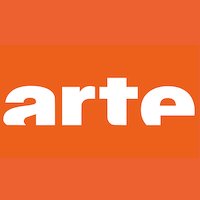Easter etymology
Note: If you are not viewing this post properly, please use the View menu and select Encoding --> UTF-8
For non-Orthodox Christians, Sunday the 16th of April is the Feast of the Resurrection, which is called Easter in the English language. There is a Germanic etymology for this word, which I will not get into here.
However, the Romance languages use a different term: Pascha, Pâques, Pascuas, etc. These stem from the Hebrew word Pesach (פסח), which of course means "Passover". Easter is the Passover of Jesus Christ.
In the sister Semitic language of Arabic, it is called Eid al-Feseh (عيد الفصح). Pesach – Feseh. Quite similar. Let us take a closer look.
In Semitic languages, consonants generally determine a word. So in Hebrew we have P (פ), S (ס), and Ch (ח). This Ch, by the way, is the same guttural letter that can also be written Kh as a phonetic equivalent.
In Arabic we have F (ف), S (ص) and H (ح). The middle letter, S, is the same. So let us take a look at the first: P in Hebrew versus F in Arabic. In fact, these are often interchangeable in the 2 languages (Arabic does not have a P). For example, take Kippur (כיפור), "Atonement". In Arabic, this is Kfara (كفارة) - notice again the P and F switch.
That leaves the Ch, or Kh, in Hebrew (ח) versus the H (ح) in Arabic. These letters, too, are interchangeable. For example, Israelis refer to Gaza strongman Mohammed Dahlan (محمد دحلان) as DaKhlan (דחלאן).
The word Chai (חי), often worn by Jews as a necklace charm, symbolizes "life". Likewise, in Arabic we have the word "life", Hayat (حياة), which is practically spelled the same.
So clearly, even a cursory look at the 2 languages shows how remarkably similar they are, and that has nothing whatsoever to do with politics.
Happy Easter. المسيح قام - حقاً قام!
For non-Orthodox Christians, Sunday the 16th of April is the Feast of the Resurrection, which is called Easter in the English language. There is a Germanic etymology for this word, which I will not get into here.
However, the Romance languages use a different term: Pascha, Pâques, Pascuas, etc. These stem from the Hebrew word Pesach (פסח), which of course means "Passover". Easter is the Passover of Jesus Christ.
In the sister Semitic language of Arabic, it is called Eid al-Feseh (عيد الفصح). Pesach – Feseh. Quite similar. Let us take a closer look.
In Semitic languages, consonants generally determine a word. So in Hebrew we have P (פ), S (ס), and Ch (ח). This Ch, by the way, is the same guttural letter that can also be written Kh as a phonetic equivalent.
In Arabic we have F (ف), S (ص) and H (ح). The middle letter, S, is the same. So let us take a look at the first: P in Hebrew versus F in Arabic. In fact, these are often interchangeable in the 2 languages (Arabic does not have a P). For example, take Kippur (כיפור), "Atonement". In Arabic, this is Kfara (كفارة) - notice again the P and F switch.
That leaves the Ch, or Kh, in Hebrew (ח) versus the H (ح) in Arabic. These letters, too, are interchangeable. For example, Israelis refer to Gaza strongman Mohammed Dahlan (محمد دحلان) as DaKhlan (דחלאן).
The word Chai (חי), often worn by Jews as a necklace charm, symbolizes "life". Likewise, in Arabic we have the word "life", Hayat (حياة), which is practically spelled the same.
So clearly, even a cursory look at the 2 languages shows how remarkably similar they are, and that has nothing whatsoever to do with politics.
Happy Easter. المسيح قام - حقاً قام!
















